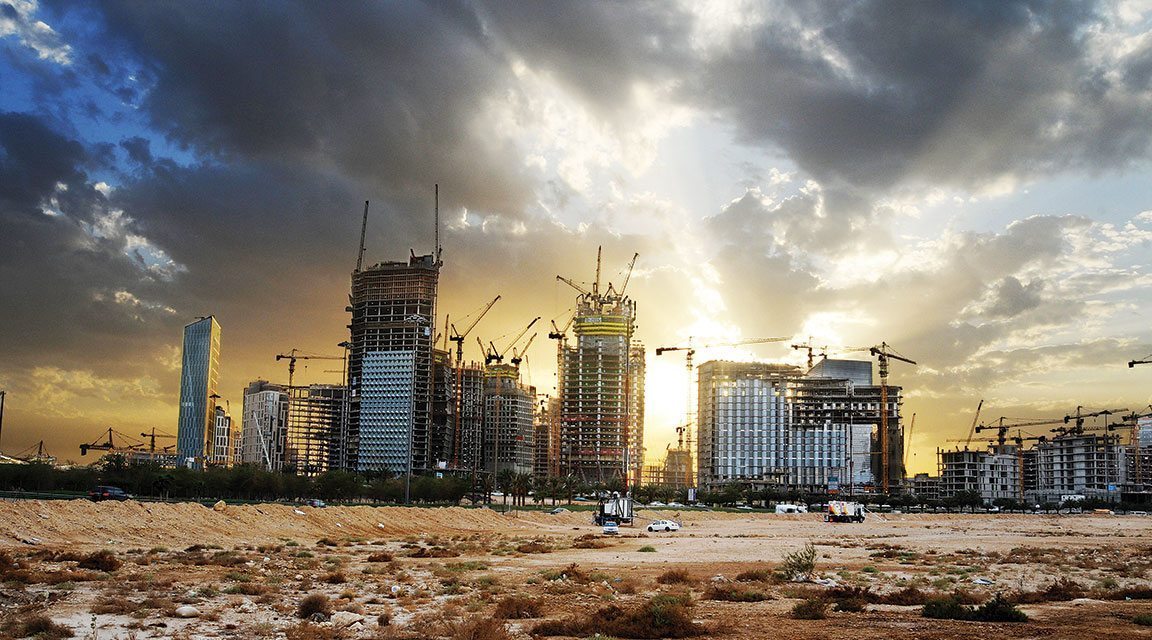

Responding to spending cuts is the challenge for 2016
Anyone still expecting a year of growth from Saudi Arabias projects market in 2016 would have had their hopes dashed on 28 December when the Finance Ministry announced cuts to infrastructure spending of more than 60 per cent.
The drop in spending from SR63bn ($17bn) in 2015 to SR23.9bn in 2016 will mean that progress on the largest projects on which contracts were due to be awarded this year will be slow. The decision to cut spending followed an edict from the Finance Ministry in late October to stop awarding contracts until the end of 2015.
Further bad news emerged in the New Year, after the Finance Ministry instructed Saudi Binladin Group (SBG) to stop work until further notice on the expansion of the Prophets Mosque in Medina, without giving a reason for the decision.
The move does, however, demonstrate that the government is prepared to stop work on high-profile projects if it needs to, meaning that progress is no longer a certainty on anything.
Crucial test
For new work, the crucial test is whether the five contracts worth SR33bn for phase one of the Mecca Metro are awarded. The hope is that the investment, which will cater for religious pilgrims, has been ring-fenced and the project will proceed as planned, although the decision to halt work in Medina suggests that even spending on these projects could be drastically scaled back.
With the fate of Mecca Metro hanging in the balance, the prospect of awards being made on other planned metro networks for Jeddah, Medina and Damman now appear increasingly unlikely, meaning the kingdoms largest new transport projects will stall in 2016.
While transport spending is expected to slow, investment in power projects is forecast to continue. Even after the Finance Ministrys order to stop awarding contracts last year, Saudi Electricity Company (SEC) awarded Spains Initec Energia the estimated $700m contract to build the Duba integrated solar combined-cycle (ISCC) power plant.
For 2016, SEC is preparing to receive bids in February for the 3,780MW ISCC plant in Taiba that is estimated to cost $3bn to build.
For oil and gas, Saudi Aramco is expected to proceed with some projects. It is due to award $1bn-worth of contracts to build pipelines on its Master Gas System Expansion (MGSE) at the end of January. Aramco received several engineering, procurement and construction (EPC) bids from contractors at the end of May 2015.
The state oil company is also preparing to invite companies to bid on the two main packages on its $3bn Ras Tanura refinery Clean Fuels Project in January 2016.
The scheme was meant to have been awarded in late 2013 or early 2014, but was retendered after the original bids came in well over Aramcos preferred budget. With construction costs falling, there is an expectation the project could usher in a new period of counter-cyclical investment.
Private sector
Longer term, the projects market will increasingly look to the private sector. Deputy Crown Prince Mohammed bin Salman, in an interview with The Economist in early January, promoted the notion of a more active private sector in the kingdom and even said there were plans to list Saudi Aramco.
With the drive to privatise coming from the top, it is no longer a question of whether the government will move to develop the private sector, it is a question of when and how.
Despite approval from the highest level to privatise, the process will take time as new legislation and regulations will need to be adopted
Public-private partnerships are the most likely option for infrastructure schemes, whereas for real estate and housing the private sector has been incentivised to develop, with the introduction of a new tax levied on unused land. For power, there has been a return to the independent power project model, with the 1,200-1,600MW Fadhili co-generation plant, and for oil and gas, Saudi Aramco, or at the very least some of its subsidiaries or operating companies, could be listed.
You might also like...

Rainmaking in the world economy
19 April 2024

Oman receives Madha industrial city tender prices
19 April 2024

Neom seeks to raise funds in $1.3bn sukuk sale
19 April 2024

Saudi firm advances Neutral Zone real estate plans
19 April 2024
A MEED Subscription...
Subscribe or upgrade your current MEED.com package to support your strategic planning with the MENA region’s best source of business information. Proceed to our online shop below to find out more about the features in each package.








